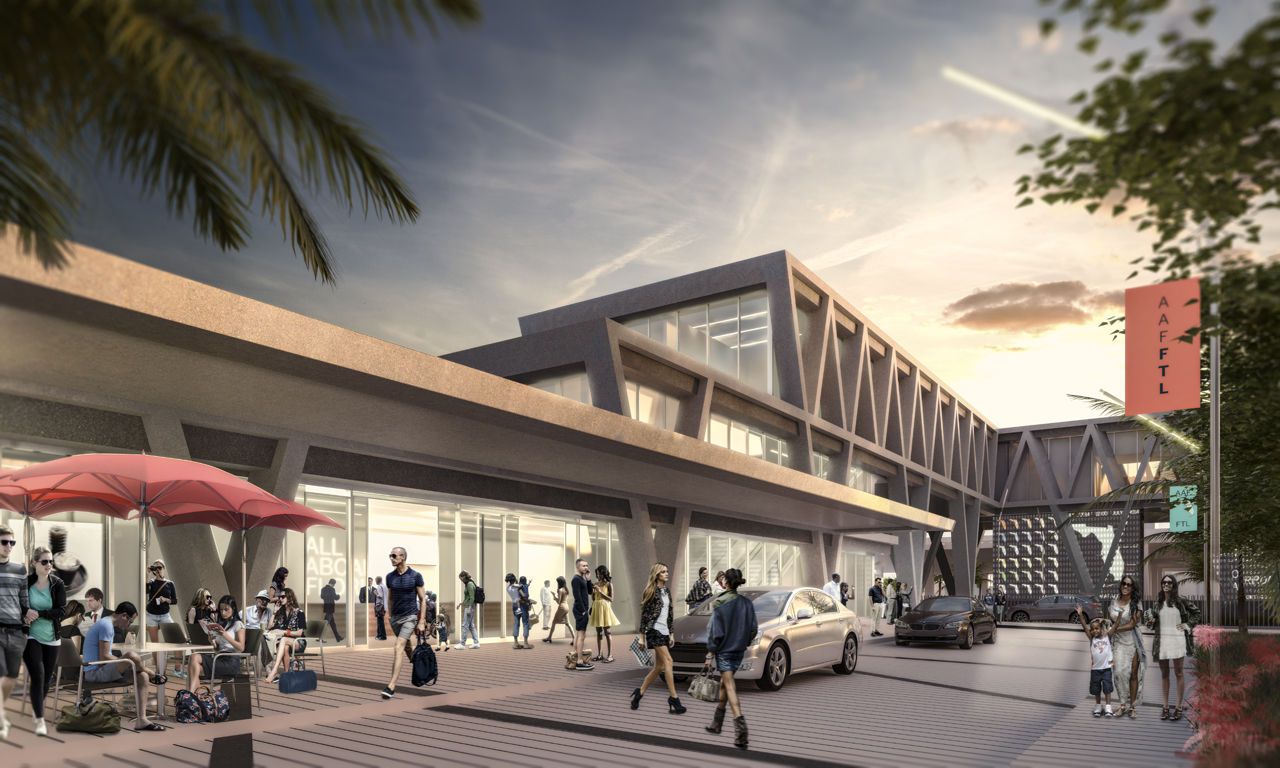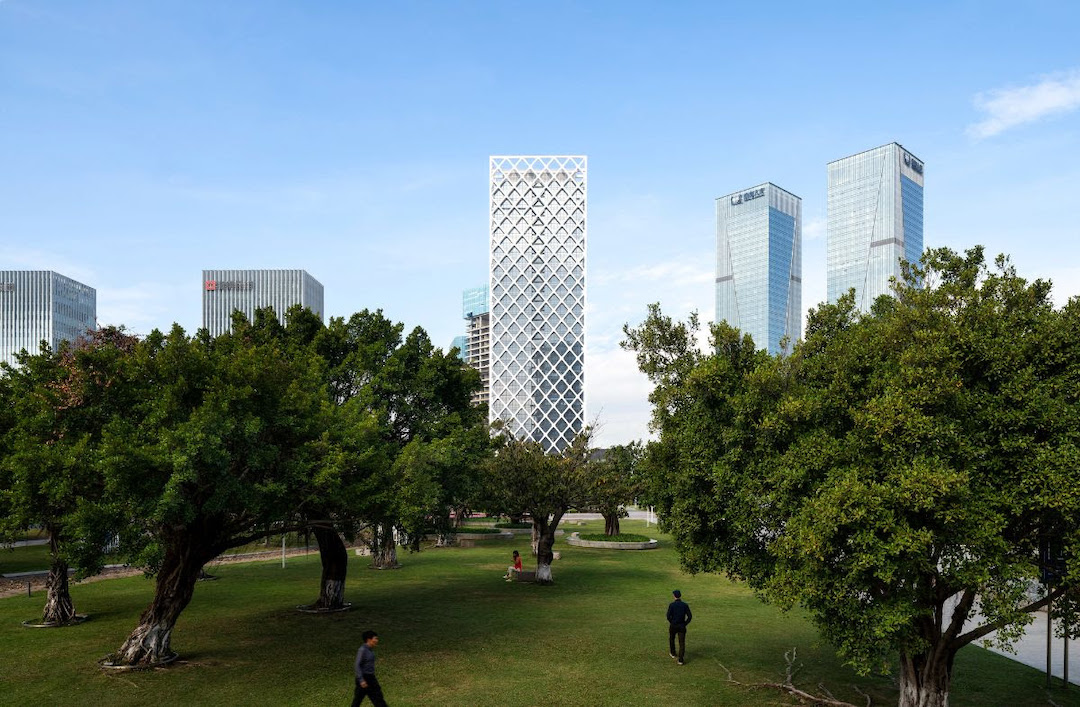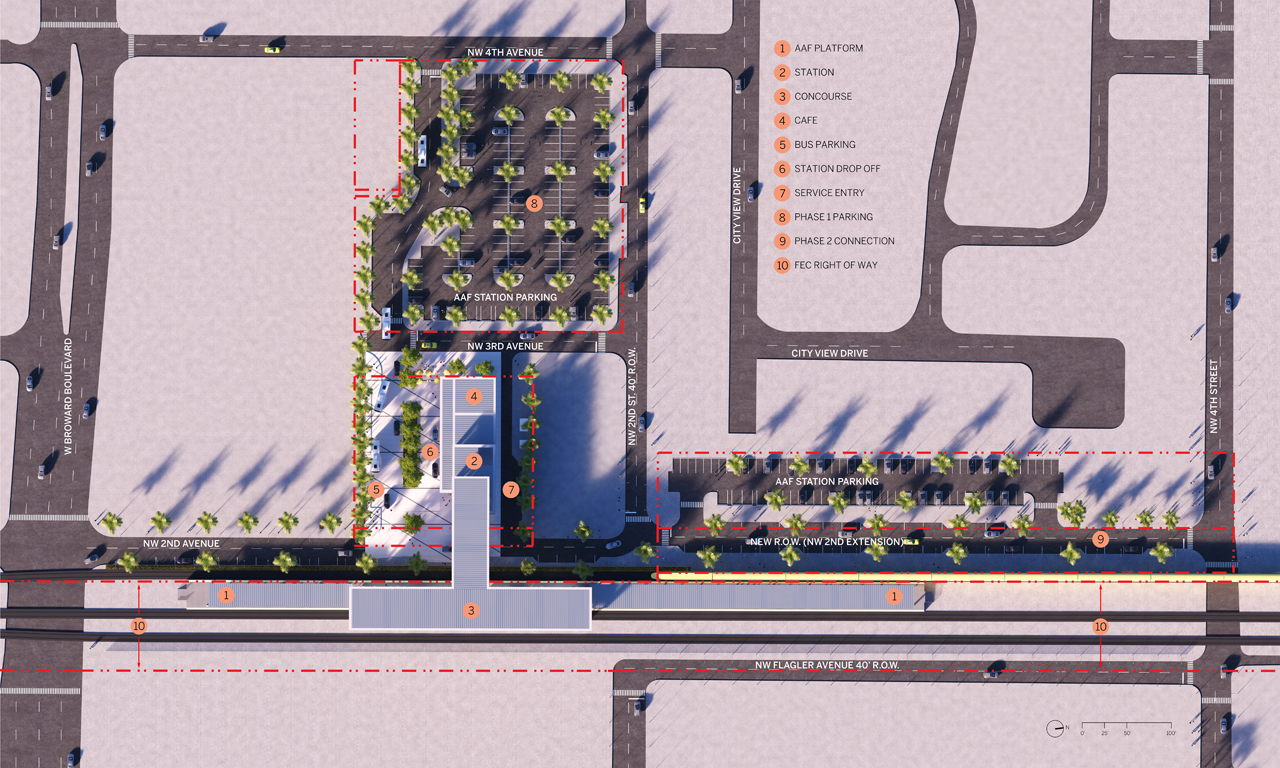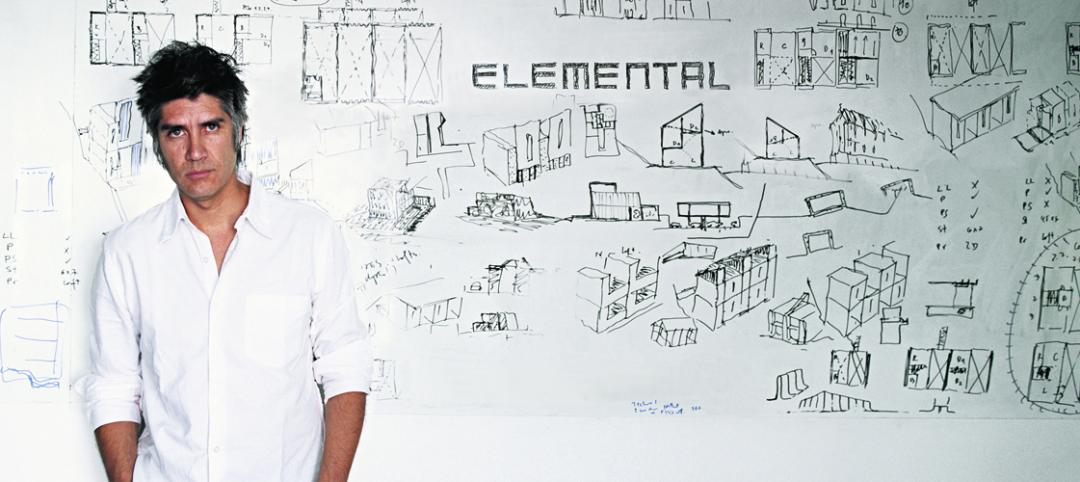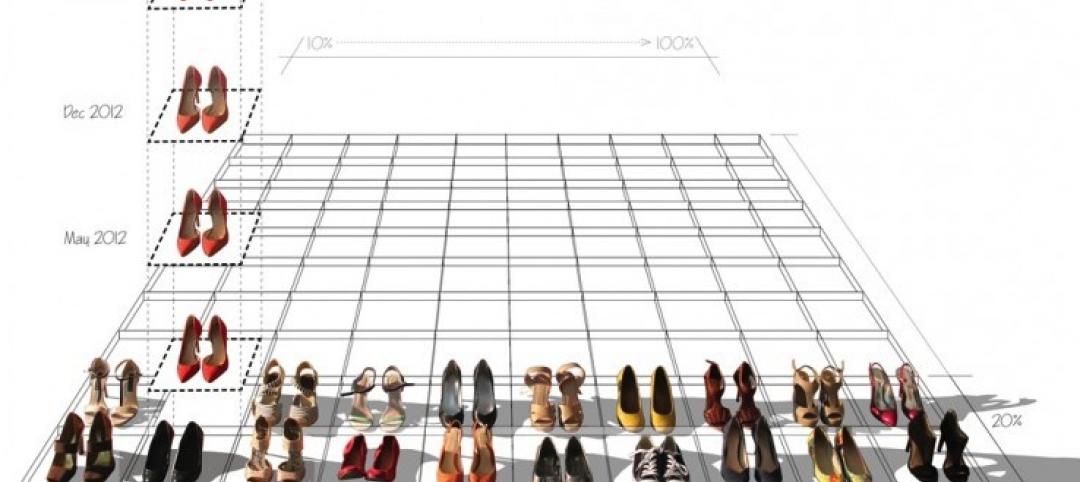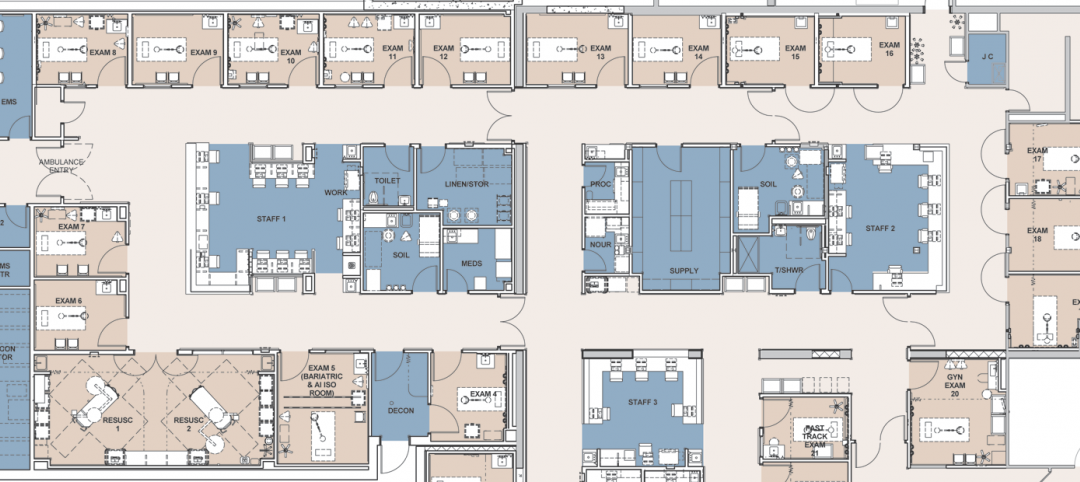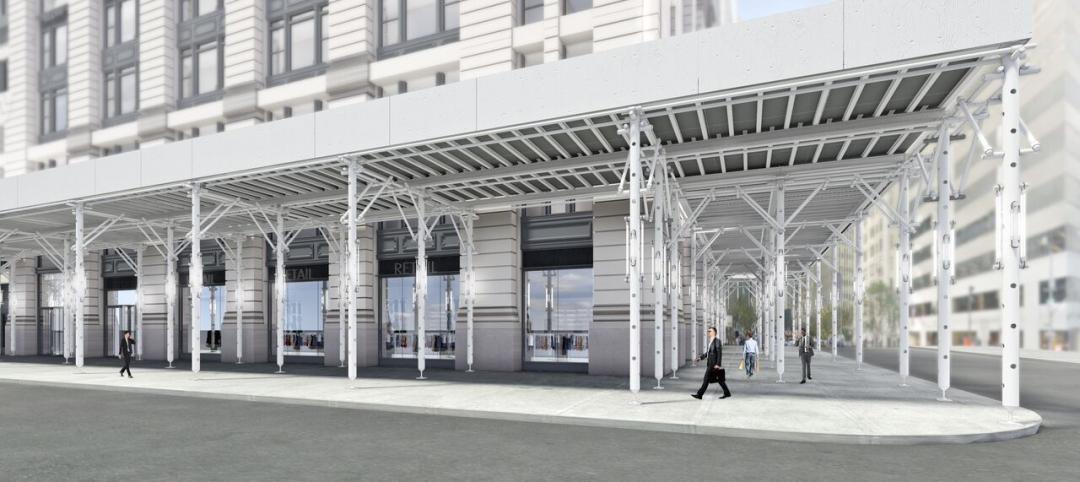An estimated three million car trips will be eliminated from the Southeastern United States each year—one of North America's region busiest with visitors, thanks to sunny weather and theme parks. At least, that's the plan for All Aboard Florida, the country's only privately owned, operated, and financed railway project.
The 235-mile rail network will connect South Florida to Orlando by utilizing the existing Florida East Coast corridor infrastructure. Global leading architectural firm Skidmore, Owings & Merrill (SOM) was invited on board as architect and planner for the Fort Lauderdale station.
The design, unveiled yesterday, is lightweight and luminous, which SOM Design Partner Roger Duffy says "responds to its setting and creates a striking infrastructural icon for the city."
“Fort Lauderdale is a dynamic city whose leadership understands the importance of creating new opportunities and solutions that keep up with the needs and demands of our increasingly mobile world,” says Michael Reininger, President and Chief Development Officer of All Aboard Florida. “As with our other planned stations in South Florida, All Aboard Florida will not only set a new standard in passenger rail, but will revitalize Fort Lauderdale’s downtown core fueling job and business growth, reducing road congestion, increasing tourism, delivering state and local tax revenues, and contributing long-term environmental benefits.”
The 27,500-sf station will be situated in northern downtown Fort lauderdale on 4.8 acres adjacent to existing Florida East Coast Railway tracks. The building will rise above surrounding buildings, serving as a powerful urban focal point.
A press release from SOM describes how a day in the station would be like:
The plan for the station itself is open and intuitive. Arriving passengers will enter a glazed ticketing lobby at grade level, with dedicated vehicular drop-off and pedestrian links to the city. Travelers will then ascend up an escalator to a bridge over NW 2nd Street, and enter a departures lounge, elevated 30 feet above the station platform.
Additional banks of escalators will take waiting passengers down from the floating lounge, onto the shaded platform, and into their trains. The use of glass throughout this sequence of spaces provides a constant visual connection to the city as well as approaching trains. Viewed from a distance, the station’s stacked, dynamic form evokes a feeling of movement.
Related Stories
| Jan 14, 2016
How to succeed with EIFS: exterior insulation and finish systems
This AIA CES Discovery course discusses the six elements of an EIFS wall assembly; common EIFS failures and how to prevent them; and EIFS and sustainability.
Market Data | Jan 13, 2016
Morgan Stanley bucks gloom and doom, thinks U.S. economy has legs through 2020
Strong job growth and dwindling consumer debt give rise to hope.
Architects | Jan 13, 2016
‘Socially engaged’ architect Alejandro Aravena named 2016 Pritzker Architecture Prize Laureate
Known for his inventive social housing initiatives in his native Chile, Aravena epitomizes the revival of a more socially engaged architect, the Pritzker jury stated.
Architects | Jan 12, 2016
Dear Architecture: It's time to create a level field for female designers
If architecture took one moment to be introspective, it would discover appalling imbalances between the opportunities for women and men, as Perkins+Will's Vershaé Hite and Brittany Eaker-Kirkland wrote in an open letter.
Great Solutions | Jan 6, 2016
Shepley Bulfinch develops elegant design solution to address behavioral issues in emergency departments
ED scheme allows staff to isolate unruly patients and visitors in a secure area.
Market Data | Jan 5, 2016
Majority of AEC firms saw growth in 2015, remain optimistic for 2016: BD+C survey
By all indications, 2015 was another solid year for U.S. architecture, engineering, and construction firms.
Architects | Jan 5, 2016
Potential vs. credential: How men and women differ in career progress
Recent research suggests that women face yet another career impediment: the confidence gap.
Architects | Dec 17, 2015
Capturing utilization and activity data in the workplace
While utilization is an important metric to inform how frequently a space is used, it’s important to consider activity data.
Architects | Dec 17, 2015
Four winners named in NYC sidewalk shed competition
Firms in the Construction Shed Design Competition made designs that are simple to build and use readily-available materials.
Architects | Dec 16, 2015
Lohan Anderson to close, join Wight & Co.
Dirk Lohan, Floyd Anderson and eight others will be hired by the Illinois-based Wight & Co. next month.



